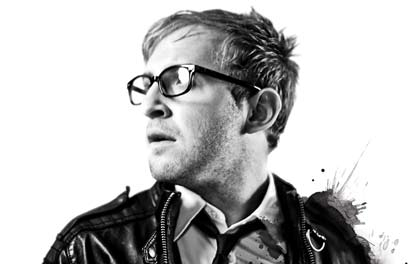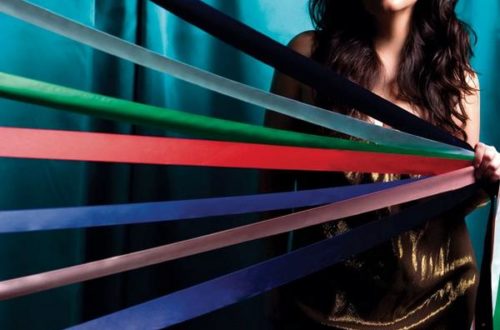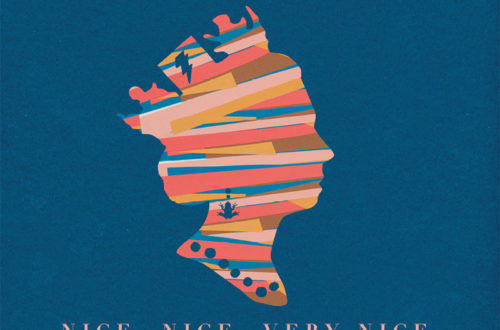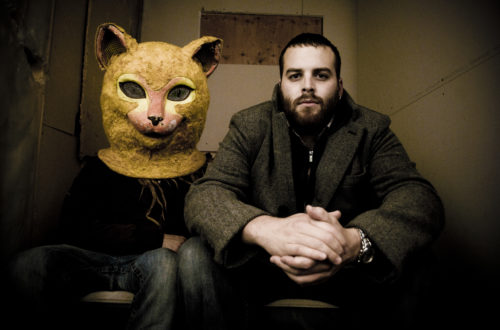
Part 2 with Juno Winner Greg Sczebel
This week’s column is part 2 on Greg Sczebel.
Last week we established that Greg Sczebel is a Juno Award winner, he’s won the John Lennon Songwriting Contest twice, he placed 4th in the 2010 Peak Performance Project, his CD’s are in HMV’s and retail stores across Canada through a major distributor, he has several endorsements including Yamaha, and he even managed to snag himself a bright shiny new Nissan just for being so ‘talented and unique’. To top it off, he’s accomplished all of this completely independently, no labels and no execs… unless you count his devoted family members, friends and fans. Oh and did I mention he’s only in his mid 20’s? Seriously.
I was so fascinated by Greg’s story that I tracked him down for a second interview. What I really wanted to get to was how on earth he has come so far on his own, and what barriers he must be facing along this independent journey. Here’s the Q&A.
I must know, how did you manage to win a Juno as an independent kid with your first album out?
A lot of people don’t realize that everyone that wins a Juno. submitted for a Juno. You’re not going to win a contest if you don’t enter it. And for myself, I could have been like ‘I’m just indie, I’m not gonna win a Juno’, but we were like ‘lets’ just submit and see what could happen.’ And next thing you know I won one. Interesting concept – that the Juno is another contest to be won. But this one comes with a pretty respected title.
Would you say that it has helped to propel your career?
Yeah, the Juno definitely helped. I mean it’s like, any award, as silly as it is, those things are badges of honor that make people actually pay attention to you. It’s like if I say I’m a singer people are like ‘oh yeah, you and everybody else’…
But if you say you’re a Juno Award winner…
Then all of a sudden you have their attention. So it definitely makes you stand out in the crowd.
And another thing that helps you get attention across the country is your second album’s distribution through Fontana North, a major distributer under Universal. How did you, a wee independent artist, get a deal like that without being attached to a label?
Well I really wanted to have mainstream distribution in stores and I really had no idea how to do it but the connection to Fontana actually happened through the manufacturer. I wanted to press a huge number of copies, like 5000-10,000 so I was using one of the major companies, Polar Bear, which is operated by Fontana. And one of the middle men there, who’s now my buddy Cam Kushnir, heard my project and saw my cover artwork which was really elaborate, and he freaked out and loved it and he thought it should be huge. So he brought it to the attention of Fontana North and they liked it and went with it. It’s funny because it was exactly what I was hoping for but I just didn’t know how to go about it.
So now you’re a Juno Award winner with albums in HMV’s all across Canada, and then we add that you have endorsements on top of it. How does one get an endorsement deal with, Yamaha, for example?
It’s about being ready, and about jumping on opportunities. We were at a music conference and Yamaha did a panel on endorsement deals and I always loved Yamaha pianos and gear and I was hoping for a deal with them. The guy on the panel had to leave early and as he was walking by we passed him my press kit. He wasn’t even from the keyboard department but I guess it was good enough to be passed on because they called me months later and offered me a deal. So they provide me with a piano for a gig no matter where I am, free of charge. And then even that brings you yet another level up as it certainly adds to the polished and professional look of your shows.
Another thing that separates you from most indie artists is that others don’t think to do half of the things you do to make your show amazing, for example getting a lighting designer like Alex Beim to make you custom lights for your show. So what makes you think to do that?
Well, maybe I’m not playing GM place or the Orpheum now but I hope to one day so in the meantime I’m gonna do the best show that I can whether it’s at The Media Club or a coffee shop. I want to make people walk away thinking ‘there should have been more people there. That should have been a huge show.” And that’s what I want to accomplish at every show – to leave that impression in people’s mind’s like “Oh! It was an injustice that there wasn’t more people there!”
And I’m sure you get that a lot because you really do look like a great big pop star up there. And actually on that note, to switch tones here for a sec, I have a confession to make. I find it really, really funny that we’re sitting here because, when I first saw you perform at the Red Room, I actually absolutely hated you…
Mmmm. Thanks! That’s… that’s fine…
..But it wasn’t because of what you were doing. And it wasn’t because of your music. Your music is cool…
Oh so it was just me personally? (laughs)
(laughs) Yeah, yeah, it’s not your music, it’s personal! No no no, it was because I, and there’s probably a lot of silly people like me, insist on being like ‘unconformed’. We see pop artists and we think ‘bleeeeugh, stupid, plastic pop.’ And when I saw you up there in all your pop glory, naturally I was thinking ‘oh he’s got the machine behind him, he’s not “real”. This is something that’s been fabricated and people have just made him into that.’ So I’m thinking everything against you. Everything that makes you amazing is against you. So the irony, I realize, is that…
That I might be more indie than some of your favourite indie artists.
Well, exactly. And that you’re actually a super, super amazing indie artist to be able to actually get to that point on your own. Like I said in the previous column about you, that ‘the illusion of the machine itself is an amazing accomplishment’. So now I’m starting to wonder about this very fine line that you face. You either get them, or you don’t. The audience either is gonna love you or hate you… and hate your for the wrong reasons.
Well yeah, people hate pop music it out of retaliation for being forced to listen to it on radio… they got sick of it. And I’ve experienced that first hand. People have totally had reactions like you did. The problem is, I’m too indie for mainstream pop music and I’m too pop for indie hipster culture.
But are you really too indie for the pop industry? Your music is extremely catchy and the production is topnotch. You would think that doing Pop music would actually make it easier for you to fit in the cracks. What kind of barriers have you faced trying to go mainstream independently?
I feel like we’re breaking new ground as far as the pop indie thing goes but there isn’t really a pop indie industry in Canada yet. You’re either really indie or else you’re a major label pop artist. And well I really love pop music but I don’t think that the state of pop music is where it could be. When I think about pop music 30-40 years ago, it’s still timeless. My whole goal was to make a classic pop album with sounds that are both modern and metro as well as truly retro and classic – something that you could listen to for 10 years that’s hip and cool but not so trendy that it’s going to be disposable in a couple months. And I was really passionate about it but then I started pitching it and I didn’t really get much response. At the end of the day, everyone is trying to make a dollar and certain things are selling really well right now and it’s hard for them to take a risk. So for me that was kind of a dream that died. I kinda thought if we made an album that was undeniably good and classic then surely people will embrace it and it will do really well and we can make a go of it independently but it didn’t really pan out like that.
Have you considered signing to a label then?
I always wanted to be signed to a major label but when I was approached by a major label and actually got to that place where I got to meet with them, like I met with EMI and Sony, I realized how much I would have to give up. I would have to change my music to fit in a little box of what was hip and cool in radio at that current time. And I started to see that they might want to make me a clone of, say, Justin Timberlake or a carbon copy of whatever else was popular at that time. And I was like, okay I can give up everything that makes me unique and have a record deal, or I can do this on my own terms. And maybe not have as much success or maybe just take longer to have success but I can do my own thing.
So does that mean you would never sign to a label?
Well people always ask me that now, like ‘oh you would never sign to a record label right?’ And it’s like no it’s not that, it’s just that I wouldn’t sign a ‘stupid’ deal. I’d rather be able to make the kind of music I want and build the foundation of my career first and then partner with someone later on if that partnership made sense. But it would be a ‘partnership’. For me, it’s really important that I’m hands on in the development of my career and record labels aren’t doing development anymore anyway. So I have to do it myself.
—
With talent so obvious, an attitude so refreshing, a personality so likable, music so catchy, a will so strong, and a network so vast, there’s no doubt in my mind that Greg Sczebel will continue on this impressive path of success. This boy is part of the massive industry quake that’s creating some very inviting cracks for indie artists like you and me. And while it seems at the moment he may be stuck between a rock (the industry) and a hard place (ignorant pop cynics like me), I truly believe he’ll break through. I’m really looking forward to watching the rest of his story unfold for years to come.
The Nitty Gritty on Greg Sczebel
Shameless Promotion:
• Buy Greg’s CD, “Love & Lack Thereof ”, from his website
www.gregsczebel.com
Where to Listen:
• 100.5 The Peak FM, Virgin Radio Vancouver 95.3 FM
Where to Buy:
• HMV, CD Plus, iTunes, gregsczebel.com
On the Web:
• www.gregsczebel.com, myspace, youtube, facebook: /gregsczebel,
www.justin.tv/gszcebel (Sunday night video streaming chats at 6pm)
Musical Sound in 4 words or Less:
• Metro, Retro, Pop, Soul
Ideal performance setting:
• Having the ability to fill GM place but instead opting to play a week of sold out shows at the Orpheum – for its intimacy and great sound.
What he’d call the phase he’s in:
• Transitional – both career wise and personally. Trying to make the best decisions. Rediscovery. Renewed Vision. New Dreams. New Plans


